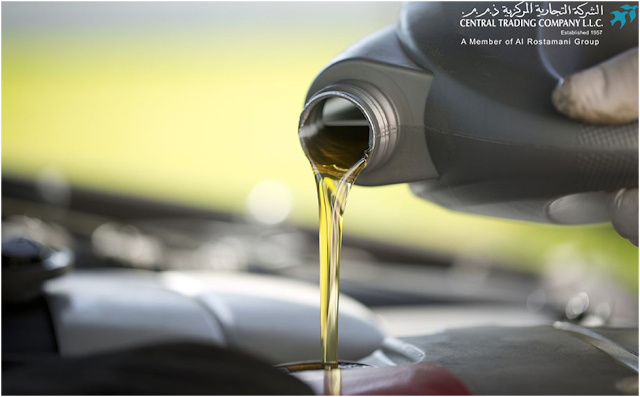When
it comes to car maintenance, there isn't much that we can handle on our own. We
almost always need professional
automotive services for
vehicle maintenance tasks like rotating tyres or changing spark plugs.
However,
one of the few things you can do without the help of a mechanic is change
engine oil. After all, it's very tempting to think that this simple maintenance practice
doesn't require a professional. After all, it just involved draining the old
oil, changing the filter, and then pouring in new oil and viola! You're done,
isn't that it? Turns out, it's not that simple. Chances are you're missing
something or doing part of the process wrong.
That
being said, let's cover a few major mistakes you may make when changing
engine oil on your own.
Common DIY Oil Change Mistakes
If you're
looking to change your engine oil yourself for the first time, or if you are a
seasoned DIYer, nearly everyone who has ever changed a car's oil has, at some
point or another, made at least one of these errors. So, to help you
learn from those mistakes (so that you don't repeat them), here's our list of
some major mistakes you're probably making when changing your car's oil.
·
Using The
Wrong Oil Grade
Using the wrong oil is probably one of the typical mistakes
people make. By "wrong
oil,"we mean the wrong viscosity. Engines vary, as do their motor-oil
requirements, and using something other than your manufacturer's
recommendations can damage your engine.
You need to know which oil to use in your engine and the
right viscosity. For instance, using synthetic oil in an older engine designed
for conventional oil can cause leaks. Before attempting to replace your car's
oil, be certain what type it is and what are your car's requirements.
·
Over Or
Under-Filling Your Oil
When
changing your engine oil, it is important to be precise with the oil you use.
Over or underfilling your oil can cause serious problems for your engine. For
instance, if you add too much oil, it can cause damage to your engine by
causing the oil to foam. In extreme situations, this might lead to lower
performance, excessive fuel usage, and in some cases, engine failure.
On
the other hand,underfilling your oil can cause insufficient lubrication and
overheat. This can lead to increased wear and shortened engine life. Therefore,
it is important to consult your owner's manual and carefully measure the oil you
need before adding it to your engine.
·
Not Monitoring
Your Oil Changes
Your oil needs to be changed after one of two conditions are
met, either a certain amount of miles or months. And not keeping track of
the miles since your last oil change can lead to trouble.
It is difficult to know when the last oil change was
performed without an accurate record. This can result in the car being over- or
under-serviced, which can cause expensive damage. In addition, not keeping
track of oil changes can void a car's warranty.
·
Not Putting
the Oil Filter on Properly
As
crucial as changing your car's oil, replacing your oil filter, and ensuring it
is installed properly holds the same importance. After all,the oil filter is
the thing that keeps your oil impurities-free and needs to be swapped out with
every oil change. If you don't install the filter correctly, these
contaminants can bypass the filter and enter the engine, causing premature
wear. In addition, an improperly installed filter can cause an oil leak, leading
to engine damage or a fire.
Moreover, there
are three things to know about changing the oil filter.
·
First,
when you remove the filter, ensure the O-ring (a
seal that prevents oil from leaking from your oil pump) comes off
with it. You certainly do not want to install the new filter with two
O-rings.
·
Second,
moisten the O-ring with oil before you screw the new filter on. Lubing the
O-ring helps the filter and engine connect better and helps you more easily
remove the filter at your next oil change.
·
Finally,
don't over-tighten. You only need to hand-tighten the filter. Make it tight,
but don't go overboard.
·
Not Carrying
Out Other Necessary Maintenance Tasks At The Same Time
While
every vehicle owner knows the importance of routine oil changes, it's
equally important, especially for DIYers, to perform basic maintenance tasks,
such as checking the air filter, brake fluid, and engine coolant.
Car
owners need to understand that just swapping out the oil and calling it a day
isn't going to cut it. The other maintenance tasks are just as critical as oil
changes. After all, your car represents a substantial investment, and if you
wish to protect that investment, you must keep up with its maintenance.
Wrapping Up
As you can see, performing your engine oil change isn't
complicated, but there are common mistakes that even seasoned DIYers
sometimes make. Now that you have this guide with you, we hope you'll avoid
these mistakes in the future and keep your vehicle running strong for miles to
come.
Besides
maintenance, if you're looking to get your hands on quality automotive
products, consider contacting companies like CTC – one of the top names in the
UAE automotive aftermarket. Order today!






%20(1)%20(1)%20(1)%20(1)%20(1).jpg)
0 Comments